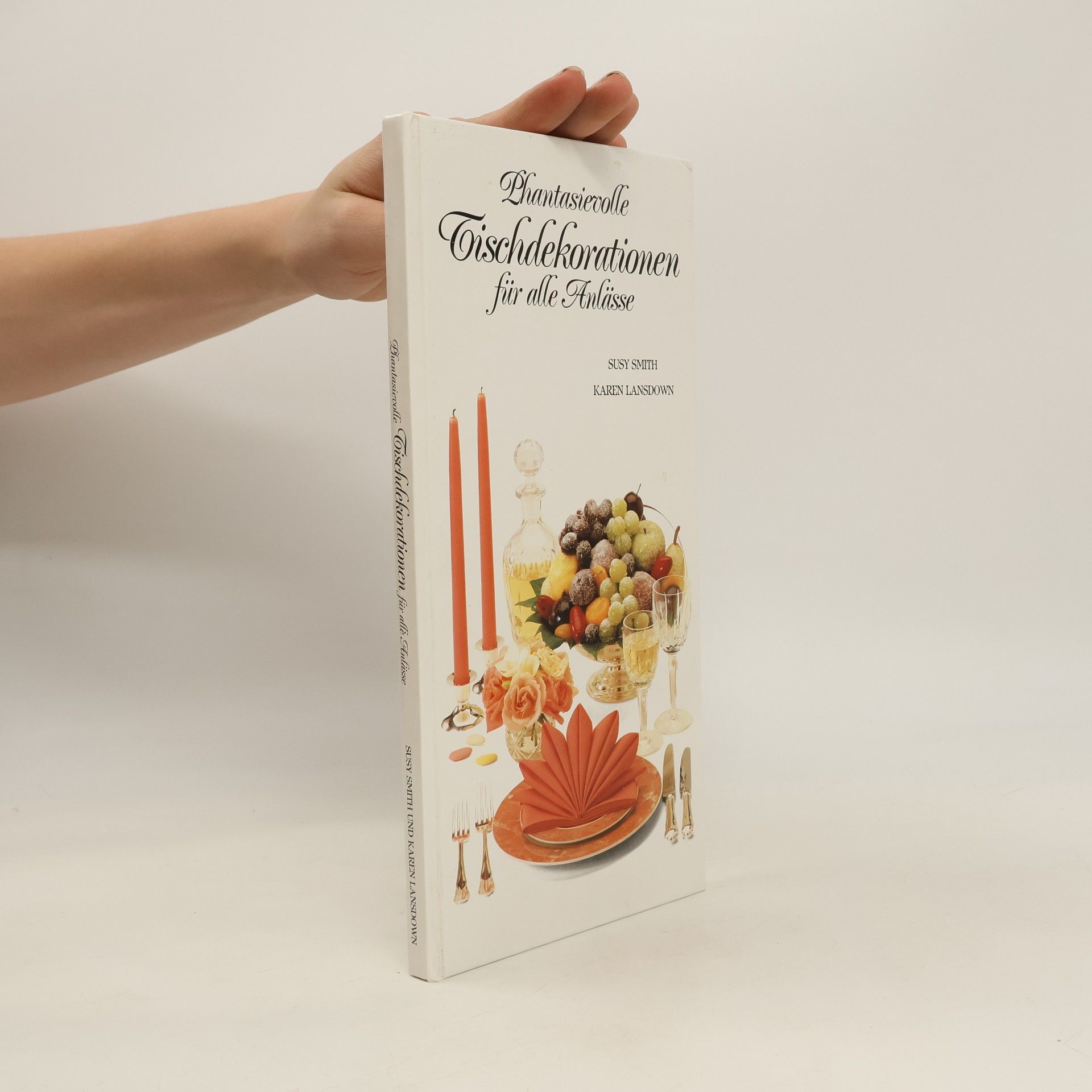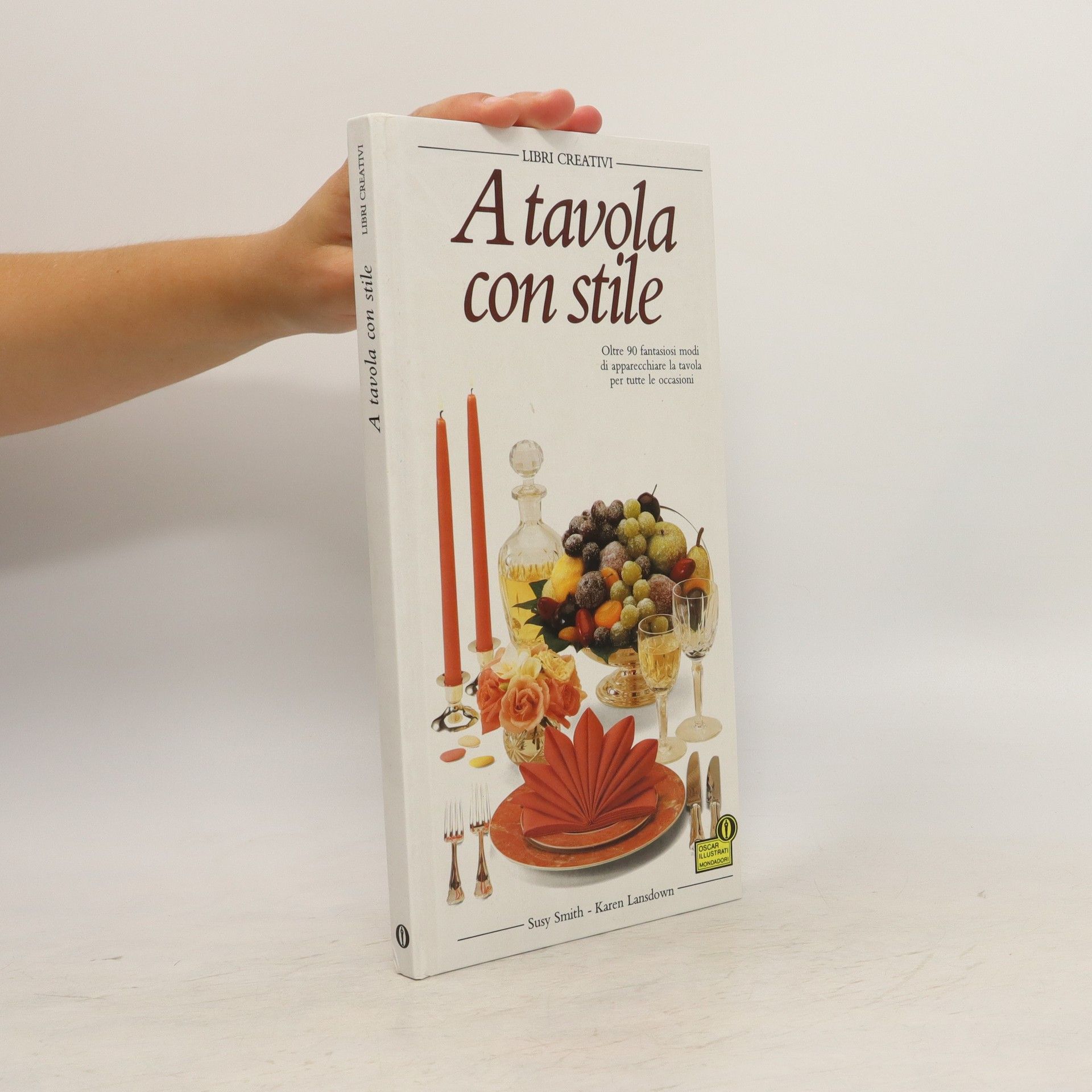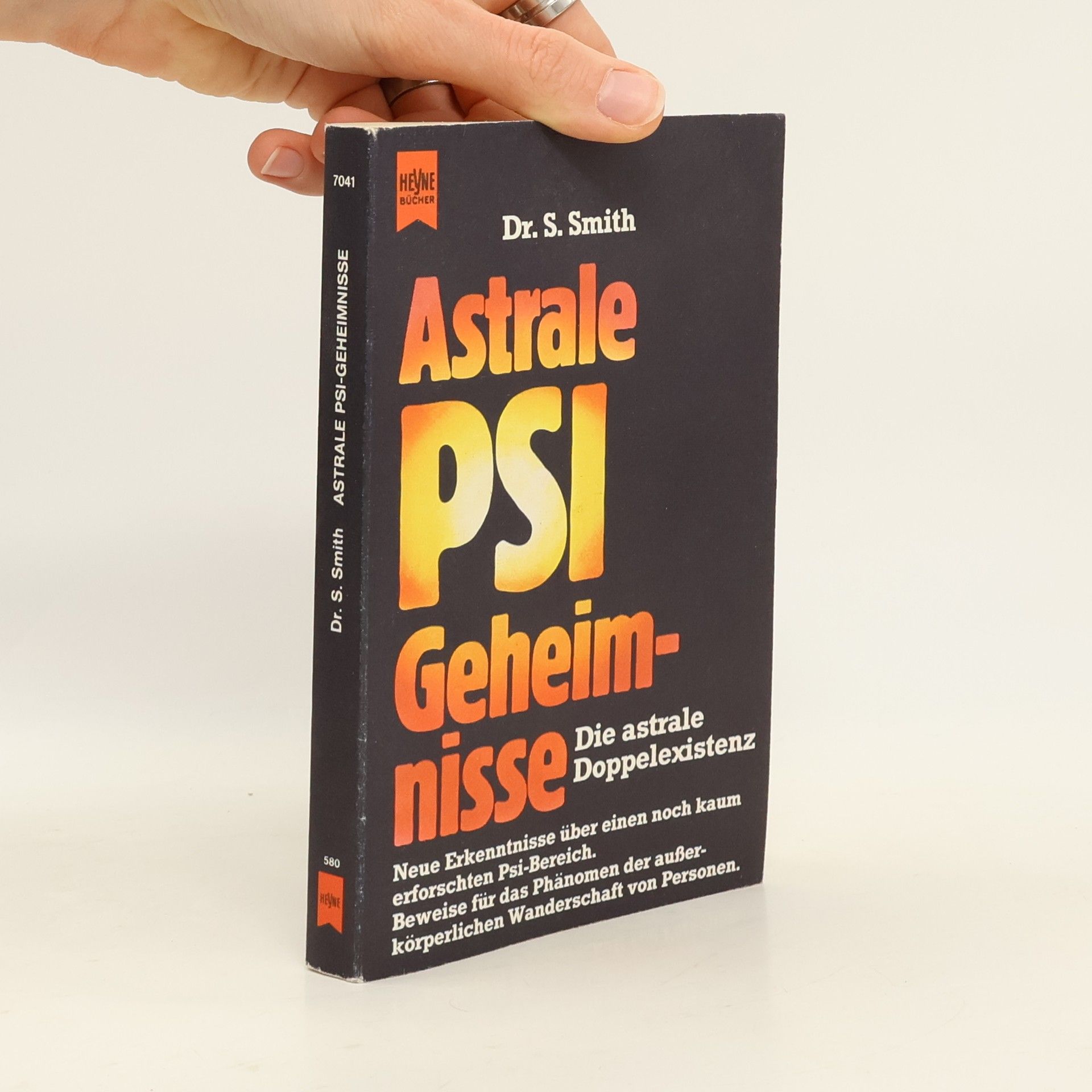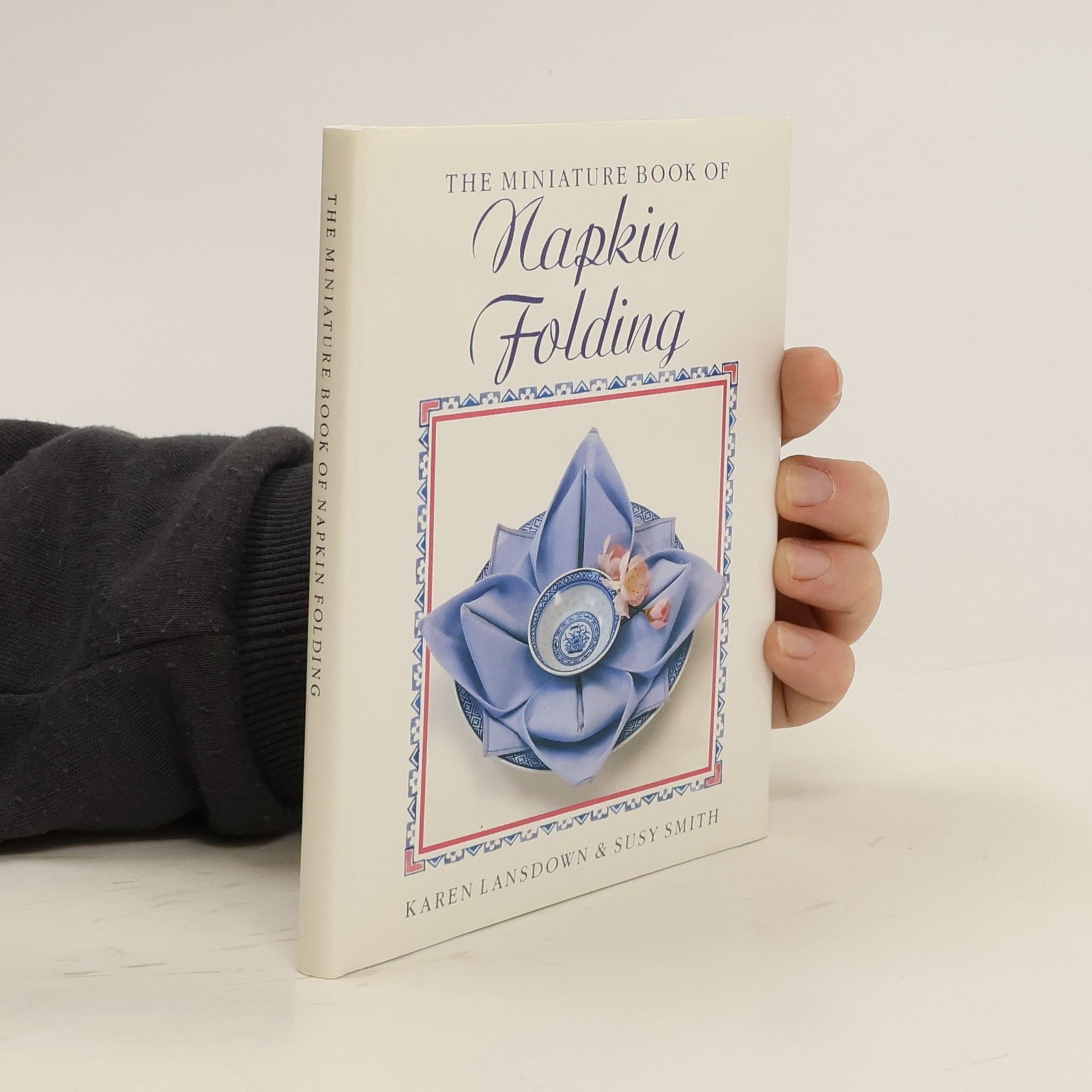Miniature Book of Napkin Folding
- 45 pages
- 2 hours of reading
Miniature Art of Napkin Folding Lansdown, Karen and Smith, Suzy






Miniature Art of Napkin Folding Lansdown, Karen and Smith, Suzy
Une foule d'idées pour mettre vos tables en fêtes
Vorschläge für dekorative Arrangements von schlicht bis festlich, für edle Feste, für Partys verschiedener Anlässe und für Feiern mit Kindern.
Hardcover. Creative decorations. Table setting and design.